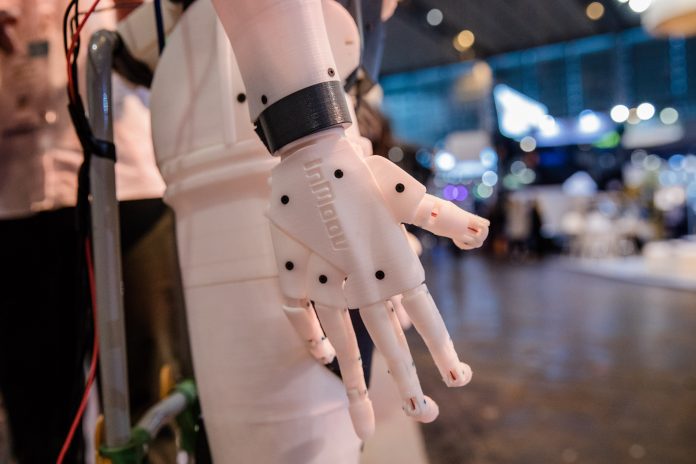
Text Size:
Bengaluru: To deal with shortage of doctors and healthcare workers during the coronavirus pandemic, the Karnataka government is planning to enlist robots for help.
The decision has been taken after a suggestion to this effect was made by the technical team assisting the government in managing the pandemic.
“It was the technical committee’s suggestion to us. This will help us contain the spread (of the pandemic),” Dr K. Sudhakar, Karnataka’s Medical Education Minister who is also the overall incharge of Covid operations in the state, told ThePrint.
While a trial run is starting Thursday, the minister said the state Covid task force will take a formal decision on the project in a couple of days.
For the test run, the state has roped in a US-based robotics company, BePresent, which also has presence in Bengaluru, to help with remote consultation and monitoring of Covid patients, using robots.
The government is introducing these robots Thursday at a new Covid care facility at the Bangalore International Exhibition Centre (BIEC), located on the outskirts of the city.
This BIEC centre with 10,100 beds is reportedly one of India’s biggest Covid facilities.
We are deeply grateful to our readers & viewers for their time, trust and subscriptions.
Quality journalism is expensive and needs readers to pay for it. Your support will define our work and ThePrint’s future.
Also read: India’s Covid-ravaged states seek more funds from Modi govt
‘Can provide specialist consultations to remote areas’
Dr C.N. Manjunath, a nodal officer from Karnataka’s Covid-19 task force, said these robots will help doctors with consultations.
“Through robotic technology, we can provide specialist consultations to remote areas. The robot has both incoming and outgoing cameras. With this, the patient can directly have a conversation with his doctors,” Manjunath told ThePrint.
Each robot costs close to Rs 10-11 lakh and can also be taken on rent. He added that one robot can be used for nearly 200 patients.
“We can virtually go on ICU rounds as well,” said Manjunath.
The robots are application-based and the doctors can download the software on their phones to keep a tab on their patients.
The state government believes the use of this technology will ease the burden on doctors and will also ensure minimum human contact, significantly reducing the risk of infection for healthcare workers.
According to Manjunath, a series of trials and demonstrations are under way to determine the number of robots needed.
“It is possible to have one robot in every floor or block. It requires a WiFi system to be activated,” he told ThePrint.
Also read: More than 2.62 lakh tests, positivity rate down to 8.6%, 16,883 recover: Latest Covid numbers
Subscribe to our channels on YouTube & Telegram
News media is in a crisis & only you can fix it
You are reading this because you value good, intelligent and objective journalism. We thank you for your time and your trust.
You also know that the news media is facing an unprecedented crisis. It is likely that you are also hearing of the brutal layoffs and pay-cuts hitting the industry. There are many reasons why the media’s economics is broken. But a big one is that good people are not yet paying enough for good journalism.
We have a newsroom filled with talented young reporters. We also have the country’s most robust editing and fact-checking team, finest news photographers and video professionals. We are building India’s most ambitious and energetic news platform. And we aren’t even three yet.
At ThePrint, we invest in quality journalists. We pay them fairly and on time even in this difficult period. As you may have noticed, we do not flinch from spending whatever it takes to make sure our reporters reach where the story is. Our stellar coronavirus coverage is a good example. You can check some of it here.
This comes with a sizable cost. For us to continue bringing quality journalism, we need readers like you to pay for it. Because the advertising market is broken too.
If you think we deserve your support, do join us in this endeavour to strengthen fair, free, courageous, and questioning journalism, please click on the link below. Your support will define our journalism, and ThePrint’s future. It will take just a few seconds of your time.